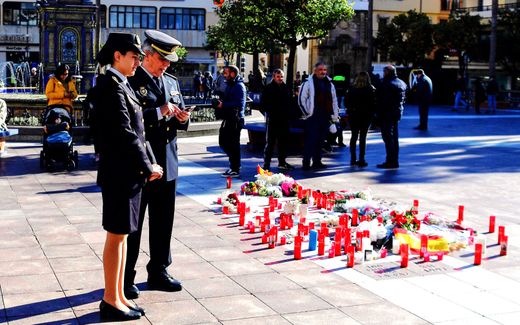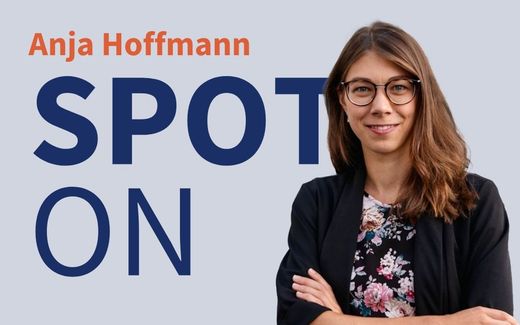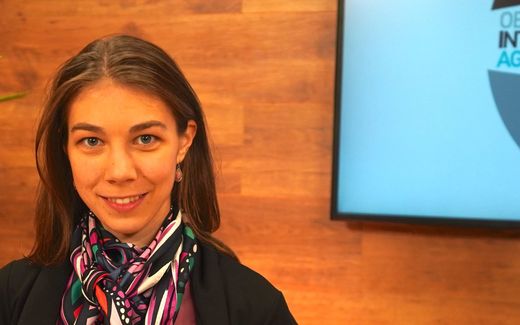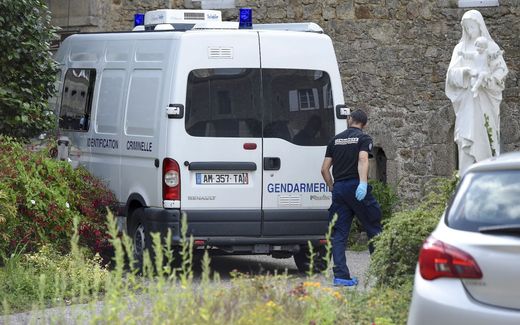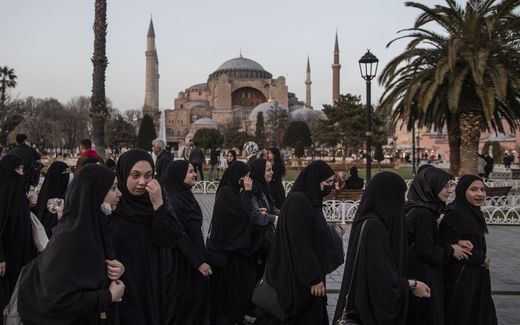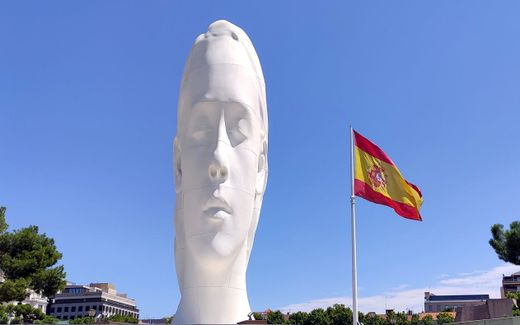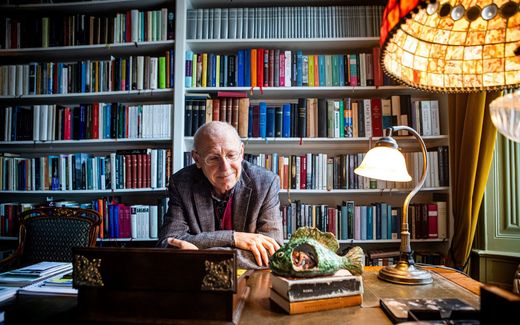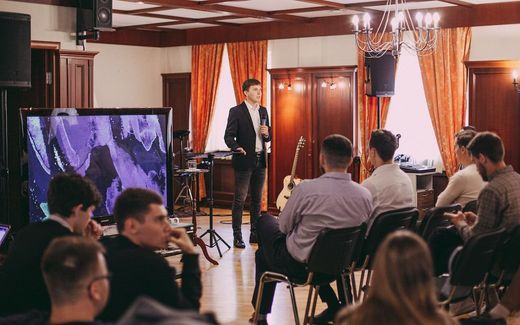Religious freedom envoy aims to combat persecution of Christians worldwide
17-01-2025
European Union
Leendert de Bruin, RD
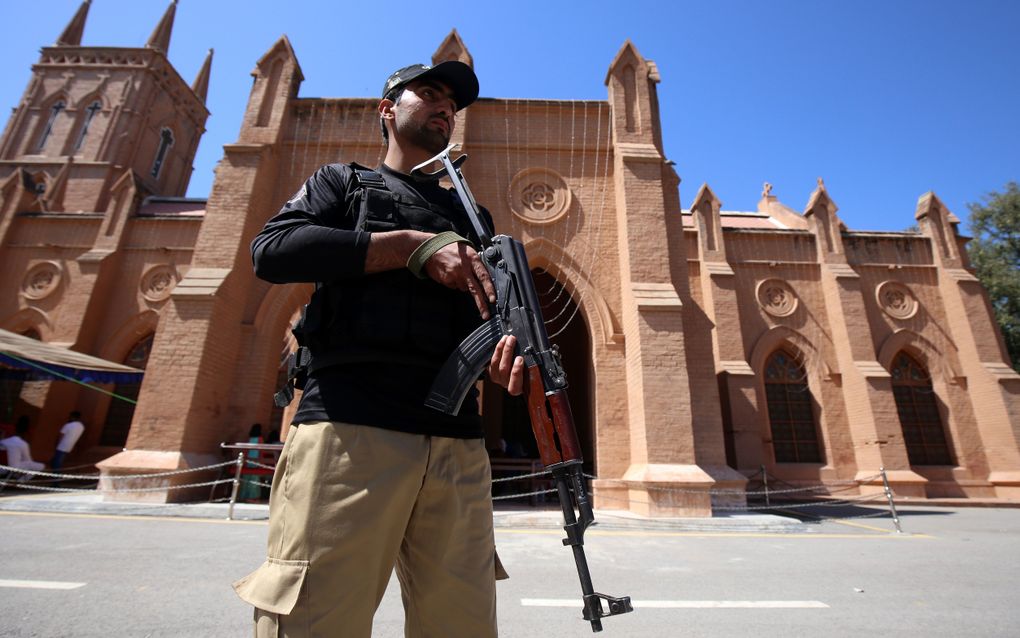
A Pakistani security official stands in front of St. John's Cathedral Church in Peshawar, Pakistan. Christianity is a minority religion in the country. Photo EPA, Bilawal Arbab
European Union
As Dutch envoy of religious freedom, Bea ten Tusscher gratefully uses the Open Doors’ World Watch list that ranks persecution of Christians. “It makes persecution visible”, she says. “Although the underlying stories are often more complex.”
The organisation Open Doors is anything but foreign to envoy Ten Tusscher (1961). She delved into the history of Open Doors and the stories of Bible smuggling, she says. “I read the autobiography of founder Anne van der Bijl, and it appealed to me enormously. By the way, my father-in-law, a reformed pastor, also participated in the smuggling of Bibles and money to the former Eastern Bloc.”
Ten Tusscher, “from a Catholic background”, has always been curious about religion, she says. After a long career in diplomacy –she was ambassador to Guatemala, Bangladesh and Norway, among other countries– she was appointed as a special envoy for religion and belief in 2022. The post, created in 2019 at the behest of Christian political parties, aims to promote religious freedom worldwide.
On Wednesday, Open Doors published its World Watch List. Did you look forward to it with interest?
“Yes, this is an important document for me, although I have had some discussions with Open Doors about the form: does it really need to be such a ranking? After all, the story behind such a list of countries is often much more nuanced.
How the envoy works
Nevertheless, I fully understand why Open Doors is calling attention to this. It makes persecution visible and is an effective way of bringing a distressing situation into the limelight. I find the analysis behind it thorough and share the conclusions.”
In what ways do you use the list in your work as an envoy?
“It is impossible for me to go through the whole list systematically. But I use it based on concrete concerns about a particular country. Then I read the relevant report, and afterwards, I know more facts about the specific situation of Christians there.

I then consult with our directorates at the Ministry of Foreign Affairs, which have the countries in question as their responsibility. With the question: what can we do about this? Especially if specific individuals are involved, we check what is within our means. I always ask our embassies whether they are aware of these cases and how we can deal with them. Because it’s difficult for me to judge that from here.”
Do you have an example?
“Then we are talking about specific problematic cases, such as people who have been jailed for blasphemy or apostasy. Last Tuesday, the embassy handed me a case from Mauritania –let’s see, Mauritania is at position 23 on the list– of a 19-year-old girl imprisoned for blasphemy. Blasphemy is taken very seriously there; it is punishable by death.
Another case is Algeria, where pastor Youssef Ourahmane has been threatened for allegedly organising illegal church services. There is only one registered Protestant church in Algeria, of which many church buildings have been closed. Pastors are punished by imprisonment. I have personally met Pastor Ourahmane. These are very harrowing cases. I notice that our embassies make great efforts in this regard. But there always has to be a concrete case.”
What resources do you have at your disposal in such cases?
“We have several instruments at our disposal, both bilateral and multilateral. Sometimes, we speak to countries directly. It is important then to use the right words and not to admonish them with a raised finger.
Multilaterally, we work through the UN, for example, by drawing attention to concrete cases of persecution through the UN envoy for religious freedom or the Human Rights Council. We also have an international contact group of countries that are like-minded in promoting religious tolerance and act jointly.
However, this should always be done very cautiously. It can be dangerous if an embassy mentions a name, as this can unfortunately lead to retaliation. This is why we prefer to work closely with victims and their lawyers. This way, we try to find out what they need from us without making mistakes due to a lack of understanding of the local culture.
Trade agreements
With that, I have to say: it is always a balancing of interests. For people who are strongly committed to freedom of religion, this can be frustrating because we cannot always speak out as firmly as they would like. The Netherlands has not only human rights interests but also economic, political and consular interests. We try to find a balance between those.”
Open Doors recommends using trade agreements to improve the human rights situation elsewhere in the world. To deprive countries that currently have favourable import tariffs of them if the situation does not improve. Are you considering such a measure?
“I am personally not in favour of conditionality in trade agreements because it often leads to other discussions and can also have disadvantages. Because what interest do you serve with it?
During my time as an ambassador to Bangladesh, I saw how textile exports to Europe helped many women build a decent life – despite the abuses in that industry, such as unsafe working conditions. It is crucial to carefully weigh the pros and cons. If done properly, it can be effective. It is, therefore, good that this issue is being discussed and explored further.”
Open Doors states that 380 million Christians worldwide are persecuted, oppressed or discriminated against because of their faith. How do you look at that number?
“I look at that with concern. There are many of them, too many. It is good that Open Doors is drawing attention to these Christians. That is also very important for us in our policy making.
Human rights for all
At the same time, Christians are not the only group facing persecution. You will never be able to pin me down to Christians alone in my work; I look at all religious minorities.
It is important to form an integral picture. Here, the connection between the various human rights is essential, with human dignity at its core. Everyone has a right to freedom of faith, conscience, expression and freedom from fear and hunger.
Persecution, moreover, is not always only religiously motivated. Socioeconomic or cultural factors often come into play, such as conflicts over land or resources.
I am, therefore, cautious about reducing such situations to religion alone. Being mindful of the broader context does more justice to reality. But I must admit that in the predominantly secular West, we sometimes tend to underestimate the role of religion in this.”
What about the Ministry of Foreign Affairs?
“I was appointed by the Chamber to promote religious literacy –as it is so nicely called. Just last year, Parliamentary questions were asked about this, which I appreciate because it helps me work on this within the ministry. With the support of academics, theologians and religious scholars, I organise courses on the role of religion.
The openness and interest among my colleagues in this matter are high; it clearly meets a need. Such courses help them to understand the essence of inequality, unequal treatment and human rights violations worldwide. Religion often plays a role in this. Not only as a cause of persecution but also as an important political factor.”
Do you recognise Open Doors’ findings? Such as increasing persecution by authoritarian regimes in Central Asia?
“Yes, we recognise these from our broader reporting. Our embassies report on this in conjunction with the broader human rights policy.
Regarding the rise of Kyrgyzstan, that surprised me somewhat. I want to discuss what we can do about that with Open Doors. In Kazakhstan and Kyrgyzstan, we are seeing an increase in violence against churches, something that was not so prevalent there before. In Kazakhstan, police raided four prayer meetings of three unregistered Protestant communities.
I am aware of that, and I have discussed it with people in my network. Soon, I will speak to the ambassador of Kazakhstan and will bring this to his attention. Our embassy in Kazakhstan is already discussing this, both about the broader human rights situation and freedom of religion.”
This article was translated by CNE.news and published by the Dutch daily Reformatorisch Dagblad on January 15, 2025
Related Articles

